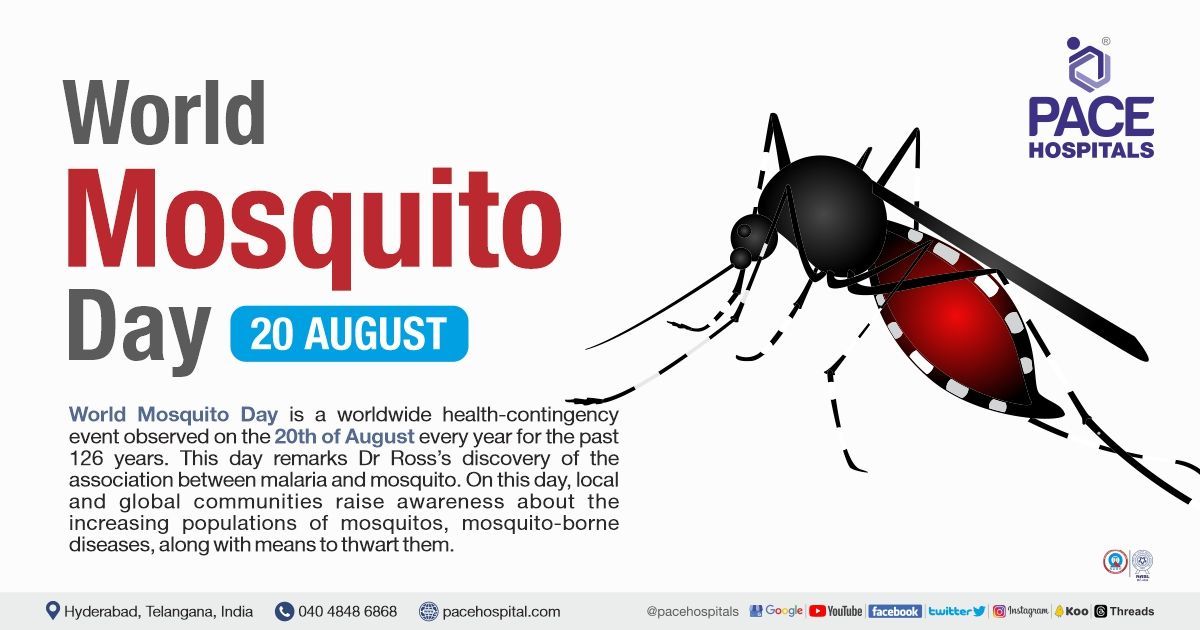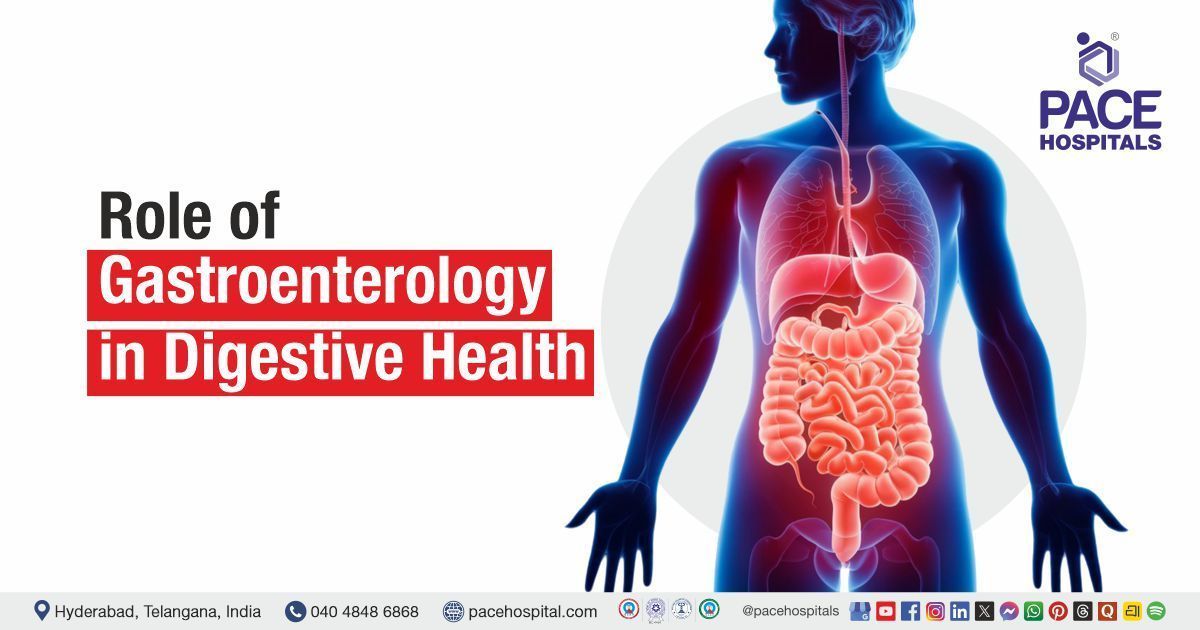World Mosquito Day, 2023 – Theme and Protection
PACE Hospitals
World Mosquito Day is a worldwide health-contingency event observed on the 20th of August every year for the past 126 years. During this day, various local and global communities gather around to raise awareness about the increasing populations of mosquitos, the factors enhancing them, the diseases they contract, along with means to thwart them.
History of World Mosquito Day
World Mosquito Day, it was on this day that Dr Ronal Ross discovered the association between malaria and mosquito. Surgeon-Major Ronald Ross of the Indian Medical Service in 1897 reported that he had found what appeared to be malarial pigment in mosquitoes which he had observed on the blood of persons infected with crescentic parasites. While other researchers assumed the role of mosquitoes as only transmitters and proceeded in searching and studying the cytology of potential malarial organisms in human blood, it was Ross who finally connected the two in finding the mosquito.
He began to work with these vertebrate hosts and their plasmodia when he was stationed in Rajputana, a period between his serving in Secunderabad and Kolkata.
World Mosquito Day theme
World Mosquito Day year-on-year theme:
- World Mosquito Day 2022 theme - Harness innovation to reduce the malaria disease burden and save lives.
- World Mosquito Day 2021 theme - Reaching the Zero Malaria Target.
Mosquito the pestilence
Since then, various researchers have attributed the origin of various vector-borne diseases to mosquitoes. Mosquitoes can affect people and animals directly or indirectly.
Direct effects: Mosquito species that feed on blood can annoy people and other vertebrates, disrupting outdoor work and recreational activities. With enough mosquitoes in an area, severe blood loss and slow growth of livestock can be seen. During their feeding, mosquitoes inject salivary fluids into their hosts containing anti-clotting factors to break down red blood cells. The bites often cause mild allergic reactions such as swelling and itching.
Indirect effects: Mosquitoes indirectly affect people and animals when they transmit disease organisms to them. Each year worldwide, mosquitoes affect millions of people by transmitting the disease-causing agent (pathogen) of several serious diseases such as:
- Encephalitis: a brain inflammation disease caused by certain viruses transmitted by mosquitoes. The viruses include eastern equine encephalitis (EEE) viruses, western equine encephalitis (WEE) viruses, St. Louis encephalitis (SLE) viruses, Venezuelan equine encephalitis (VEE) virus, West Nile virus (WNV) etc.
- Dengue: Also called breakbone fever, it is transmitted by Aedes aegypti and caused by dengue virus
- Yellow fever: Historically, yellow fever is one of the most feared epidemic diseases, as the mortality rate can reach 85%. It is caused by the transmission of yellow fever virus (arbovirus) by Aedes aegypti.
- Malaria: One of the significant problems across the world, malaria could be an acute or chronic disease caused by Plasmodium species, transmitted by female Anopheles mosquito.
- Lymphatic filariasis: Also known as Elephantiasis, a rare condition that spreads by various types of mosquitoes such as Culex, Anopheles, and Aedes.
- Dog heartworm: a veterinary disease; the dog heartworm is caused by Dirofilaria immitis – a mosquito-borne filarial worm which causes heart damage in dogs and cats.
The scientific ethicality of mosquito eradication
While we may not think twice while swatting a mosquito, gritting teeth in annoyance, eradication of the entire species raises big questions, more so now that we have developed the technology to make the imagination a certainty!
Mosquito-borne diseases negatively impact the well-being of the world’s human population, and with global warming, mosquitos spread to newer areas, infecting the locals. Addressal of such proliferating trouble finally brings out the option of eradication, bringing the extinction of these irking 6-legged airborne pests, despite whatever the amount of brainstorming policymakers search for alternatives.
Despite how sweet and tempting the envisioning of the utopia of a mosquito-free world, which can be achieved for aeons to come, especially with very less effort, the mosquito still thrives on the face of the earth only because of the significant ecological difference it brings with its disappearance.
Mosquitoes are delectable things and are easy to catch by their predators. With their disappearance, various species of insect, spider, salamander, lizard, fish, and frog would also lose a primary food source. Traits such as feeding behaviour are deeply imprinted genetically, and for the organisms to evolve, feeding another alternative could, at times could, prove impossible. This disrupted ecological niche could initiate a domino effect which can come back to bite the humans.
Protection from mosquitos and mosquito bites
- Prefer a mosquito repellent which has about 30% DEET (N, N-diethyl-meta-toluamide, an insect repellent) as it is safer in children.
- Mosquito nets can also be an advantage in households, especially those with infants.
- Permethrin-containing repellents can be applied to clothing and gear when going outside. Lemon eucalyptus oil can also be used.
- Long-sleeved shirts and pants must be preferred to avoid the bites. Light colours with loose fittings are the standard.
- Removing any stagnated water from items holding water, such as cans, tires, buckets, etc.
Share on
Request an appointment
Fill in the appointment form or call us instantly to book a confirmed appointment with our super specialist at 04048486868
Appointment request - health articles
Recent Articles











